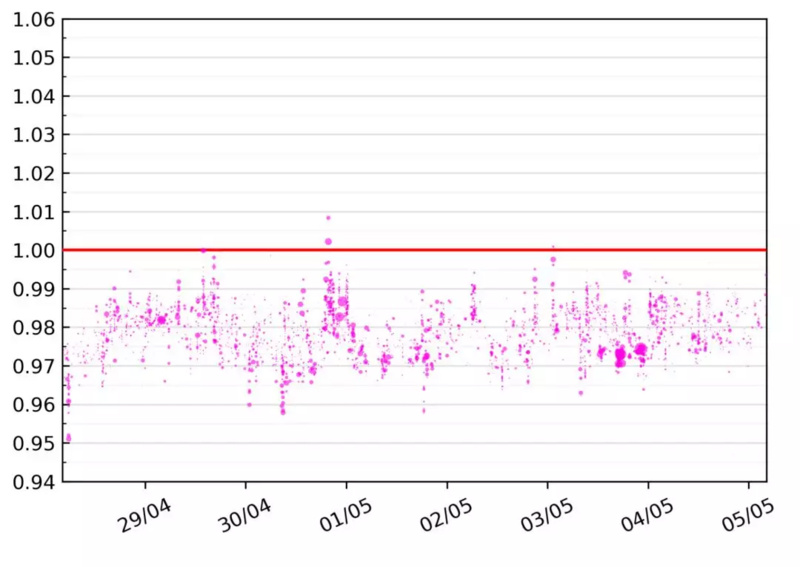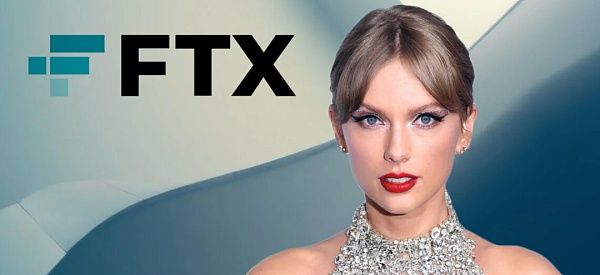MakerDAO was chosen because the bank interest rate was too high. As a result, the interest rate increased to 19.5% seven times in February.
"I don't think anyone would think of this."
Key points:
- As an Ethereum agreement for programmatic lending, MakerDAO has become a market leader, partly because its minimum interest rate is only 0.5%.
- But the code behind MakerDAO requires interest rates not only to extract business from the borrower, but also to keep its DAI stable to anchor $1.
- As interest rates rose to 19.5% and DAI remained below $1, some early borrowers felt as if they were misled.
- Investors began to blame the project's marketing strategy description similar to the digital “sweisers” and said the project's experience with decentralized financing is worse than traditional banking.
When the credit card company starts to make a loan offer, it will tell the borrower how long the offer will last. But this practice has not been practiced in the encryption world.
Given the recent changes in the market, the number of companies that have cryptocurrency-provided loans as part of their business model has increased, and this change is becoming more and more important. So far, this includes startups that use traditional products (they hold cryptocurrencies and loan cash) and blockchain agreements that offer more exotic services.
- IEO three times, was criticized by the New York regulator for the credibility of the old exchange Bittrex
- You said that BTC is easy to lose? In fact, Americans lose tens of millions of dollars in coins a year.
- QKL123 Research Report | Bears come to the cattle – Bitcoin opens a new cycle
The leader in the latter category is undoubtedly MakerDAO, an agreement that has been developed on the basis of Ethereum for many years, and borrowers can use the code to obtain a loan called the Guaranteed Debt Position (CDP). So far, 2 million ETHs have been locked in the agreement, and the agreement's stable currency DAI has now entered the market with $82 million, all supported by active loans.
While investors and developers alike like touting MakerDAO as a best example of definitive finance (DeFi), some borrowers feel that they have not benefited much from the deal.
Rising steady rate
In fact, MakerDAO's borrowing costs have risen rapidly recently, which is especially painful for those who borrow for consumption (rather than investing in leveraged encryption).
Since the beginning of February, DAI's stable rate (also known as “interest”) has changed from an annualized 0.5% to 19.5%. And it may continue to rise.
A borrower named Walter believes that this interest rate was too low at first, and then rose too high to meet the consumer's needs, he wrote in an email:
“I believe that MakerDao realizes that in order to guarantee the stability of the tokens, the interest rates must change dramatically, so they cannot support the real scene. They have a responsibility to warn users that their loans are not suitable for real-world scenarios, and they may end up with us now. See the rate to cover the user."
The problem is not that MakerDAO's interest rate has changed, but how fast it is happening.
Walter has borrowed MakerDAO since 2017. In January of this year, he saw a post about MakerDAO users who used CDP to refinance their mortgages by $50,000 to reduce the interest rate on this portion of debt from 4% to 0.5%.
Walter was convinced of this and borrowed several times from DAI in the month of the lower rate, he said:
“Using my ETH loan looks like a secure solution that saves money and retains my ETH ownership, but there are no clear signs, no warnings or alerts to indicate how fast interest rates are growing.”
As ETH prices often fall, loans continue to be in danger of being liquidated, which will clear his debts, but he also has to pay higher interest rates and liquidation fines (13% of his principal).
Now, those low interest rates look like the way projects get early adopters. Walter does not believe that this increase is malicious, but it does not matter. "The important thing is that in the end, you will be in a state of usury," he said.
Another borrower, Josh, said that if he borrowed from a bank, he would have to pay about 10%-15% interest. In this case, MakerDAO became a natural choice.
"My expectation is: maybe it will go up a bit, but (now) it might rise 40 times. I don't think anyone would think of it."
Why does the rate continue to rise?
Pan Chao, head of MakerDao China, previously published an article explaining why: The purpose of raising interest rates is to maintain the price of DAI and the dollar anchor. He pointed out that since February of this year, MakerDAO has received a large-scale attention and application, and the number of DAIs has increased from US$50 million to US$90 million. With the expectation of ETH growth and the pressure on the withdrawal of the French currency, the price of DAI appears to be slightly below the deviation of US$1.
The rate hike policy has reduced the supply of DAI. After several interest rate hikes, Dai prices began to return to $1.

He pointed out: For the borrower of DAI, it is necessary to consider the current cost of borrowing DAI (19.5% per year), decide whether to repay the DAI, and close the CDP; for ordinary DAI users, no additional operations are required. From a revenue perspective, DAI can be deposited into a stable lending system to obtain deposit interest.
In the latest article on adjusting the stable rate to 19.5%, as of now, the Maker system has been priced at approximately $335 million in ETH, and the circulation of DAI is more than $90 million, accounting for more than DeFi decentralized financial applications. 83% market share.
What is legal protection?
The question now is whether the borrower paying interest on the agreement has any protection? If it is protected, what protection?
Margot Saunders, senior consultant at the National Consumer Law Center, told CoinDesk. “There is no doubt that this is a loan.” Saunders explained that in the United States, the reasons for the loan indicate which laws apply, and the laws protecting consumers are often more restrictive than the laws that protect leveraged investors.
“I think there is at least one argument that the Loan Truth Act or at least the margin account rules will apply to these transactions,” Sanders believes. The Truth in Lending Act provides for the disclosure of the costs of different types of financial products to consumers. From the perspective of US law, it is difficult to make a broad statement about financial products used in many different ways.
On MakerDAO, people use it as a consumer or investment. No one can say with certainty how many loans are continuing because no one needs to provide this information.
However, in March of this year, Valerie Szczepanik, senior adviser to the Securities and Exchange Commission (SEC), proposed that “in these projects (stable coins), there is a centralized system that can control price fluctuations over time, so these projects ( Stabilizing coins may belong to the securities category. If the buyer is promised that someone else will hold (stable currency), guarantee profit, and control the price, then the token (stable currency) is the securities.” And said that regardless of the assets Marked as a stable currency or anything else, the US SEC will always review the project.
Saunders also said that this is obviously a new way of trading and will file a lawsuit.
Author: gourmets
Source: Odaily Planet Daily
This article refers to a number of sources of information: https://www.coindesk.com/a-loan-shark-situation-makerdao-is-leaving-crypto-borrowers-with-rising-bills-and-theyre-crying-foul Please indicate the source if you reprint.
We will continue to update Blocking; if you have any questions or suggestions, please contact us!
Was this article helpful?
93 out of 132 found this helpful
Related articles
- The money is safely stolen, and there is a new solution to the problem of saving or failing in the water.
- 1.1 billion gray smoke is gone, EOS destruction is a child play or deliberate?
- From the data point of view, what does staking mean for the PoS network?
- After the price of the mining machine doubles: overseas buyers sweep the goods, and the trillions of giants enter the market.
- Hangzhou people will buy a house and the car will have new changes, and the "blockchain notarization system" will be online soon.
- Are you still watching the K-line speculation?
- Jimmy Song: Why do blockchains without bitcoin have no soul?





